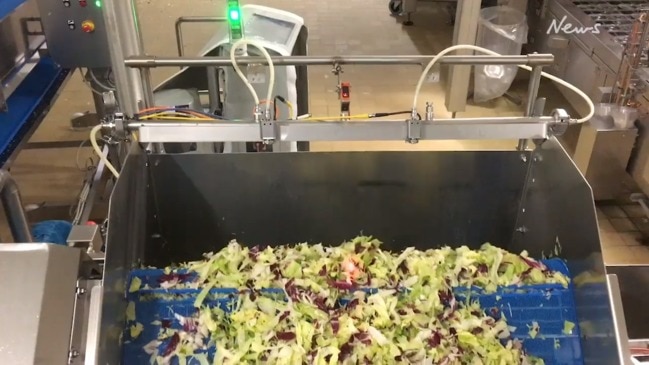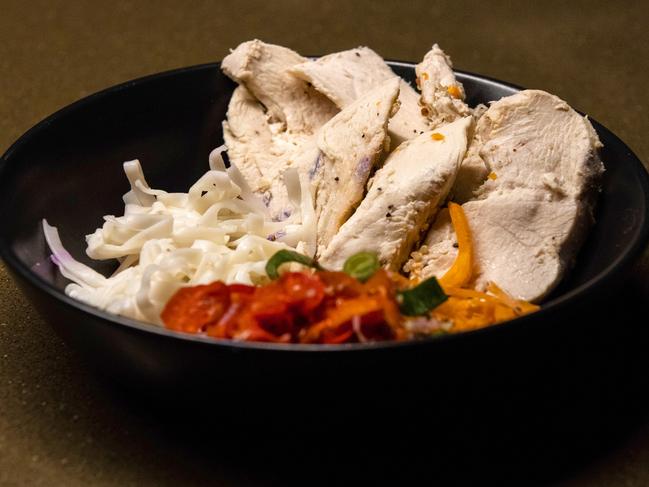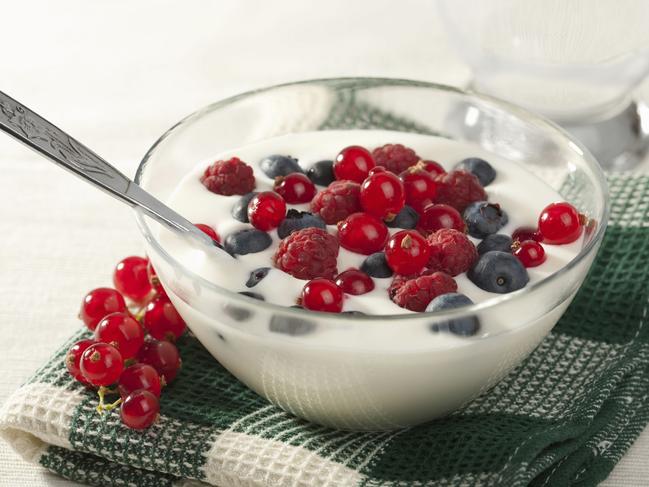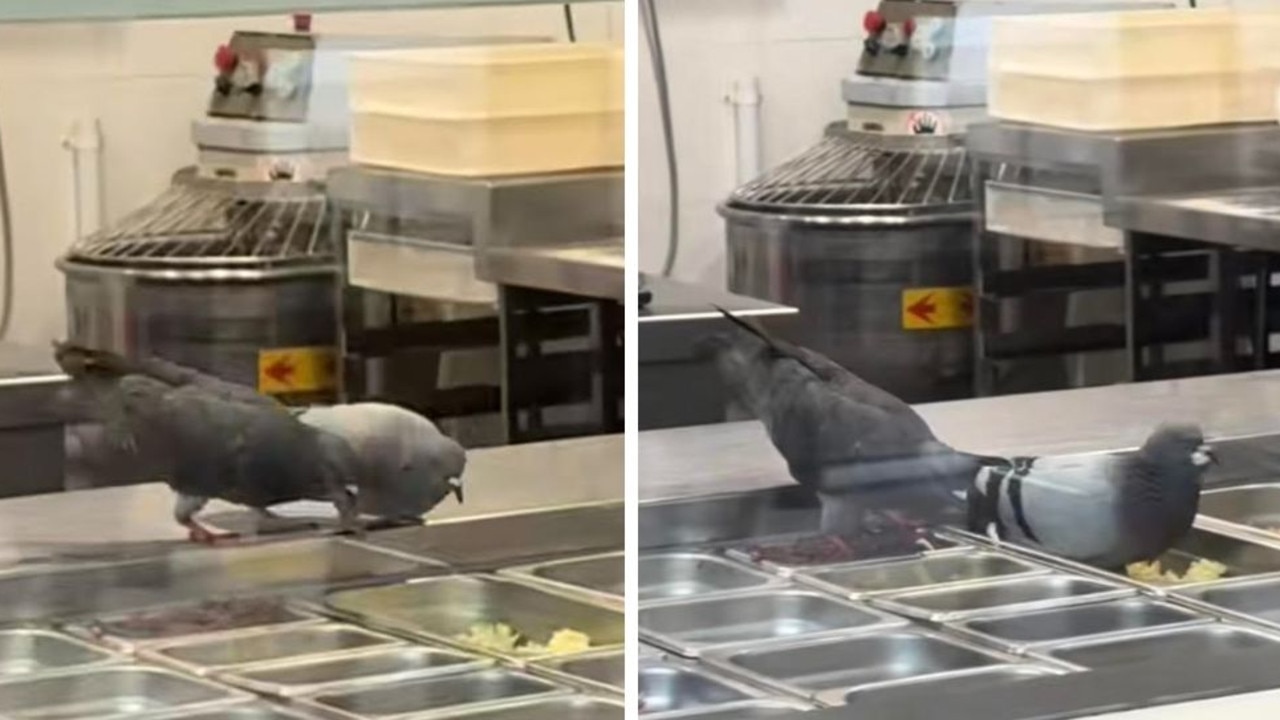New trial to stop listeria growing in our food across Australia
Deadly food poisoning outbreaks in Australia may be more preventable with new technology that can reduce bacteria, and even extend our foods’ shelf life. SEE HOW IT WORKS

Food
Don't miss out on the headlines from Food. Followed categories will be added to My News.
Exclusive: Deadly food poisoning outbreaks in Australia may be more preventable with a new spray-on technology being trialled to slow the growth of harmful bacteria.
Global bioscience company Chr Hansen is working with several well-known Australian companies who produce items like smoked salmon, yoghurt, pre-mixed salads, ready-to-eat meals and processed meats like ham and salami to trial the world’s first natural “bioprotective” spray known as Safepro.
Chr Hansen Australia and NZ CEO Kylie Evans told News Corp the spray contains a “natural bacteria” produced in a controlled environment in Europe, and is applied to foods during the manufacturing process.
It’s not about killing anything, it’s about creating another hurdle like clean factories, good hygiene, sourcing, temperature — this is an extra hurdle to create a microclimate inside the food where the good bugs outcompete the bad bugs, and keep them under control,” she said.
“Listeria is going to be present in a lot of our food it’s a natural part of the environment … this technology is about keeping that listeria at a really low level in the food so that it can’t make anybody sick.”
See how it is applied in the video above.
A million Aussies lodge tax return to get richer
Domino’s new cashless pizza option — or it’s free

Aussies are loving this Coles burger
New July 1 laws that could cost you
Ms Evans said Australian companies have been trialling the spray for the last three to four months and she is hoping the product will be officially adopted within the next six to 12 months.
“Overseas a lot of the big manufacturers of loose leaf salads and ready-to-eat meals are using this technology, it’s pretty easy to see where it’s used, you’ll see the word ‘culture’ on the product … it’s pretty likely then it’s got Safepro inside,” she said.
She said the product has also been presented to Coles and Woolworths.
“They’re very excited about the technology, and we’ve got future presentations in the coming weeks,” she added.

Ms Evans said the spray may also be able to reduce unnecessary food waste by extending a products’ shelf life by one or two days.
But she said the spray would not create products with a ‘long life’ such as milk.
“No one wants to buy a salad that lasts for 40 days,” she said.
“It’s about making the product just as safe at the end of its life, but that’ll be it.”
“It’s about making the food chain safer and it’s about reducing the amount of food waste.”
She said they are not trialling the spray on frozen food yet, but they want to focus it on in the future.
Australia’s most recent listeria outbreak was linked to rockmelons consumed last year, which left seven people dead and caused a miscarriage.
Cases of listeriosis linked to rockmelon occurred in New South Wales, Victoria, Queensland and Tasmania.

An investigation found the outbreak was caused by heavy rains and dust storms that increased the amount of listeria on the fruit.
The Department of Health states around 80 cases of listeriosis are reported each year. Symptoms can include fever, muscle aches, and sometimes nausea and diarrhoea.
Those most at risk include pregnant women where infections can lead to miscarriage, stillbirth or infection of a newborn baby.
The Food Safety Information Council states listeriosis can be “very serious” for people who have diabetes, cancer or suppressed immune systems due to other chronic diseases such as leukaemia, HIV, diabetes, liver or kidney disease, cirrhosis or ulcerative colitis and the elderly.
People taking a medicine that suppresses their immune system and organ transplant patients are also at risk.
TIPS TO REDUCE RISK OF LISTERIA INFECTION AND FOOD POISONING
*Always wash your hands with soap and running water and dry thoroughly before handling food and keep food utensils and cooking areas clean
*Ready to eat food or leftovers should never be stored in the fridge for more than 24 hours. Listeria grows slowly in the fridge very slowly at cold temperatures so make sure your refrigerator is keeping your food at or less than 5°C
*Avoid refrigerated foods that are past their ‘use by’ date
*Refrigerate leftovers promptly and use within 24 hours or freeze
*Look for cooking and storage instructions on the food package label and follow them
*Cook frozen fruit and vegetables
Source: Food Safety Information Council
Originally published as New trial to stop listeria growing in our food across Australia


